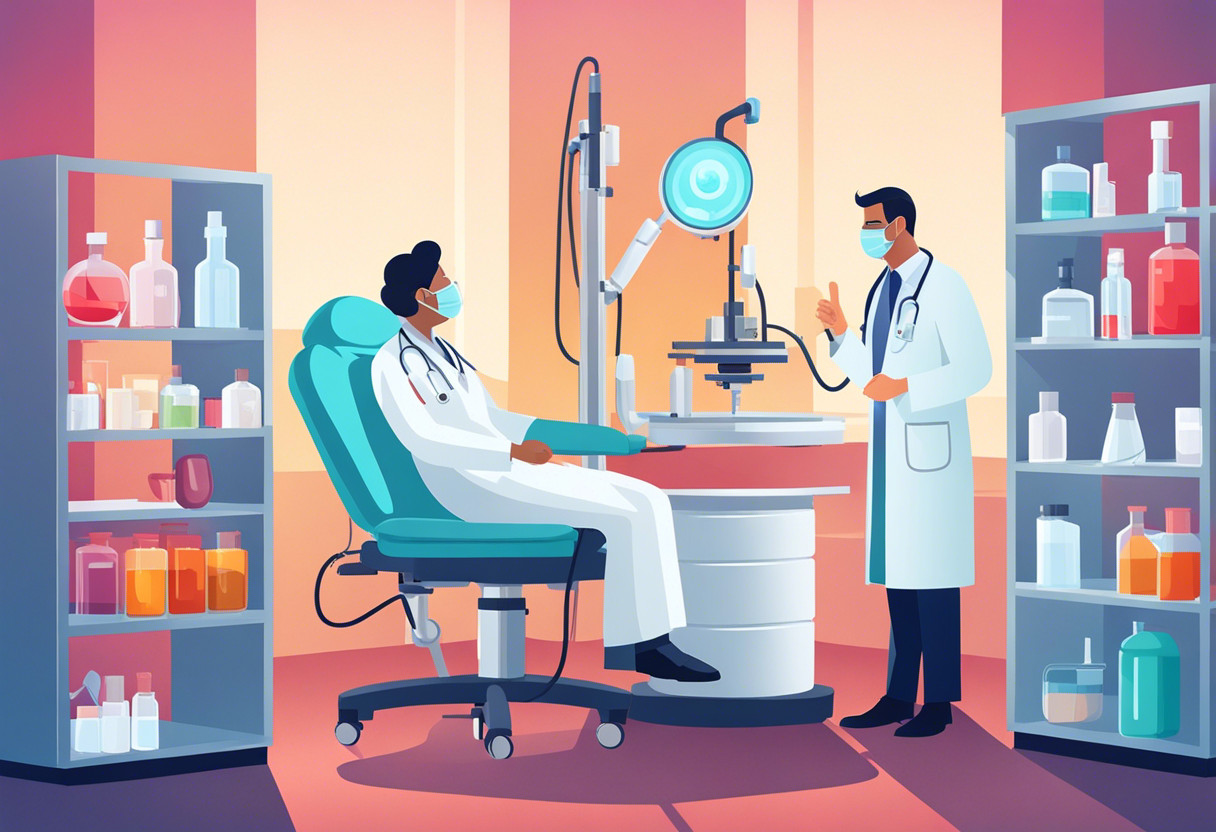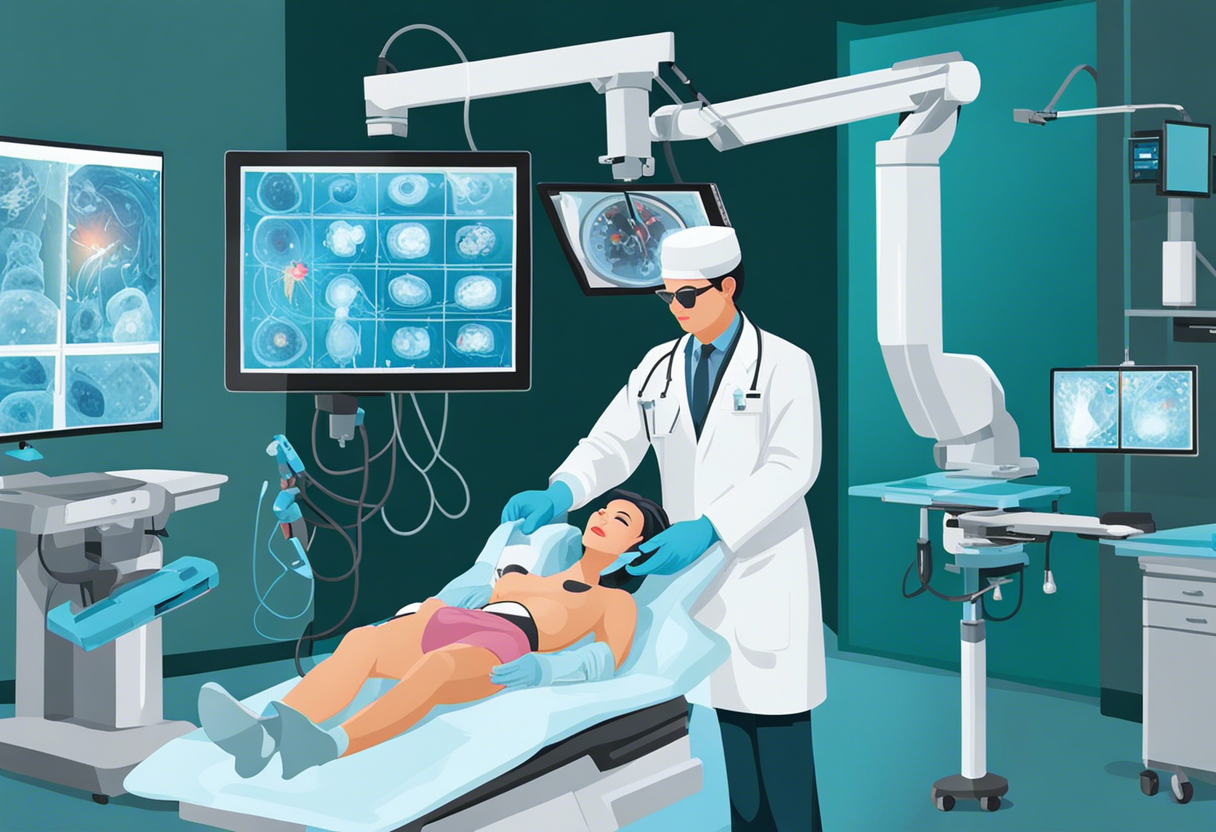Five Top Ways Your Urologist Contributes to Your Health and Wellness
Embracing preventive care can significantly cut down the chances of future complications. Your urologist plays a vital role in this by routinely screening for issues like kidney diseases, bladder problems, and urinary tract infections. These are health conditions that may not present obvious symptoms in early stages.
There's a common misconception that urology is only men-focused, especially addressing conditions like prostate cancer and erectile dysfunction. However, urologists offer essential preventive care for women too, such as diagnosing and treating urinary incontinence and pelvic floor disorders.
Understanding your medical history and lifestyle habits, your urologist makes personalized recommendations for diet, exercises, and lifestyle changes that can prevent or minimize urologic disorders. These wellness interventions can dramatically improve your quality of life.
Therefore, your urologist's knowledge and expertise guide you from possible urologic pitfalls, echoing the adage 'prevention is better than cure'.
Urologist in Detection of Serious Diseases

A pivotal part of a urologist's work involves detecting serious diseases in the urinary tract or the male sexual organs. With regular check-ups, they can discern deviations in the body systems—especially critical for early detection of cancers like bladder, kidney, and prostate.
The importance of early detection cannot be overstated, especially for cancer. It often means a broader array of treatment options, less invasive procedures, better recovery chances, and, above all, improved survival rates.
Moreover, urologists are skilled in interpreting lab results relating to urinary disorders. Their expertise can, therefore, uncover conditions that could be missed or misdiagnosed by a general physician.
Urologist’s Skills in Surgical Procedures

One of the top ways your urologist contributes to your health and wellness is by performing surgical procedures when necessary. These specialists are trained in both open, laparoscopic and robotic surgeries, which can range from minor outpatient procedures to significant surgeries.
The ability to perform complex surgeries is particularly underscored during emergencies like severe injuries to the kidney or urinary tract. Their surgical skills ensure that patients receive immediate and expert care during such dire circumstances.
Even in non-emergency situations, urologists perform operations— for instance, removing kidney stones or treating tumors— that drastically improve patients' quality of life.
Urologists as Therapists

A non-surgical, therapeutic role that urologists often play involves helping patients manage chronic conditions. Interstitial cystitis (painful bladder syndrome), chronic urinary tract infections, or recurring kidney stones are a few examples.
Since these conditions may not require surgical interventions but need long term management, your urologist is instrumental in developing a personalized plan that encompasses medication, exercises, and lifestyle modification.
This holistic approach contributes significantly to the patient's comfort and betterment, ensuring an improved living standard in the face of chronic illnesses.
Urologists and Men's Sexual Health

Urologists play a pivotal role in men's sexual health. They provide solutions for conditions such as erectile dysfunction, infertility, Peyronie's disease, and testicular tumors, which are significant contributors to men's overall health and wellbeing.
By seeking professional help, men can better understand, manage, or even overcome these conditions that possibly impact their personal relationships, mental health, and self-esteem.
Not only do urologists offer treatment, but they also offer counseling and support, making them invaluable in the journey towards improved sexual health.
Hence, the importance of a urologist's role as a source of men's sexual wellness cannot be overstated. No other specialist can provide the same level of comprehensive care.
Urologists as the Key to Women's Urological Health

Although urological health issues may not be widely recognized among women, millions suffer from conditions like urinary incontinence, kidney stones, bladder prolapse, and UTIs.
A urologist's role here is critical. Apart from offering surgical and non-surgical treatments to address these conditions, they also provide preventive care, advice, and long-term management strategies.
Moreover, women's urology also intersects with sexual health— conditions like bladder prolapse and UTIs can impact sexual function.
Therefore, a urologist's contributions to women's health and wellness are comprehensive, spanning prevention, management, and treatment of urological conditions, thereby playing a significant role in a woman's overall health journey.